
A great many birds in arid and semi-arid parts of the world spend much of their lives seeking solutions to those two simple questions. Richard Dean too spent much of his life puzzling, talking and writing about potential answers, so it seems fitting to present this article as a tribute to him and to extend the conversation to a broader group of people. Many of the ideas and observations described here came from our discussions with Richard and from his unpublished notes.
Biological production across the world largely follows time scales that are perennial, seasonal or ephemeral. Perennial production happens steadily and slowly during the year, with relatively few changes between one area or time and another. This is typical of tropical environments. Seasonal changes in production are usually substantial and predictable, as in temperate climates where blooms and booms of life in spring and summer follow months of autumn and winter dormancy.
Challenges of where and when to go seldom arise in perennial and seasonal environments where most forms of life simply wait or move regularly between known areas. These questions prevail, however, where ephemeral production is largely driven by unpredictable changes in arid and semi-arid areas, especially after significant amounts of rainfall. Life then explodes, as countless seeds, spores and eggs germinate or hatch, aestivating animals wake, termites emerge, plants and animals grow, and most forms of life reproduce as rapidly as possible. What was a quiet, sleepy environment becomes a hustle and bustle of productive life.
Denne historien er fra March 2023-utgaven av African Birdlife.
Start din 7-dagers gratis prøveperiode på Magzter GOLD for å få tilgang til tusenvis av utvalgte premiumhistorier og 9000+ magasiner og aviser.
Allerede abonnent ? Logg på
Denne historien er fra March 2023-utgaven av African Birdlife.
Start din 7-dagers gratis prøveperiode på Magzter GOLD for å få tilgang til tusenvis av utvalgte premiumhistorier og 9000+ magasiner og aviser.
Allerede abonnent? Logg på

EXPLORING NEW HORIZONS
Keith Barnes, co-author of the new Field Guide to Birds of Greater Southern Africa, chats about the long-neglected birding regions just north of the Kunene and Zambezi, getting back to watching birds and the vulture that changed his life.

footloose IN FYNBOS
The Walker Bay Diversity Trail is a leisurely hike with a multitude of flowers, feathers and flavours along the way.
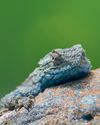
Living forwards
How photographing birds helps me face adversity
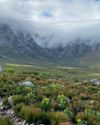
CAPE crusade
The Cape Bird Club/City of Cape Town Birding Big Year Challenge
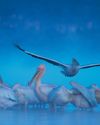
water & WINGS
WATER IS LIFE. As wildlife photographer Greg du Toit knows better than most.
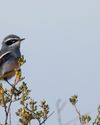
winter wanderer
as summer becomes a memory in the south, the skies are a little quieter as the migrants have returned to the warming north. But one bird endemic to the southern African region takes its own little winter journey.
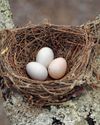
when perfect isn't enough
Egg signatures and forgeries in the cuckoo-drongo arms race

Southern SIGHTINGS
The late summer period naturally started quietening down after the midsummer excitement, but there were still some classy rarities on offer for birders all over the subregion. As always, none of the records included here have been adjudicated by any of the subregion's Rarities Committees.

flood impact on wetland birds
One of the features of a warming planet is increasingly erratic rainfall; years of drought followed by devastating floods. Fortunately, many waterbirds are pre-adapted to cope with such extremes, especially in southern Africa where they have evolved to exploit episodic rainfall events in semi-arid and arid regions. But how do waterbirds respond to floods in areas where rainfall - and access to water - is more predictable? Peter Ryan explores the consequences of recent floods on the birds of the Western Cape's Olifants River valley.
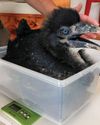
a star is born
It’s every producer’s dream to plan a wildlife television series and pick the right characters before filming.